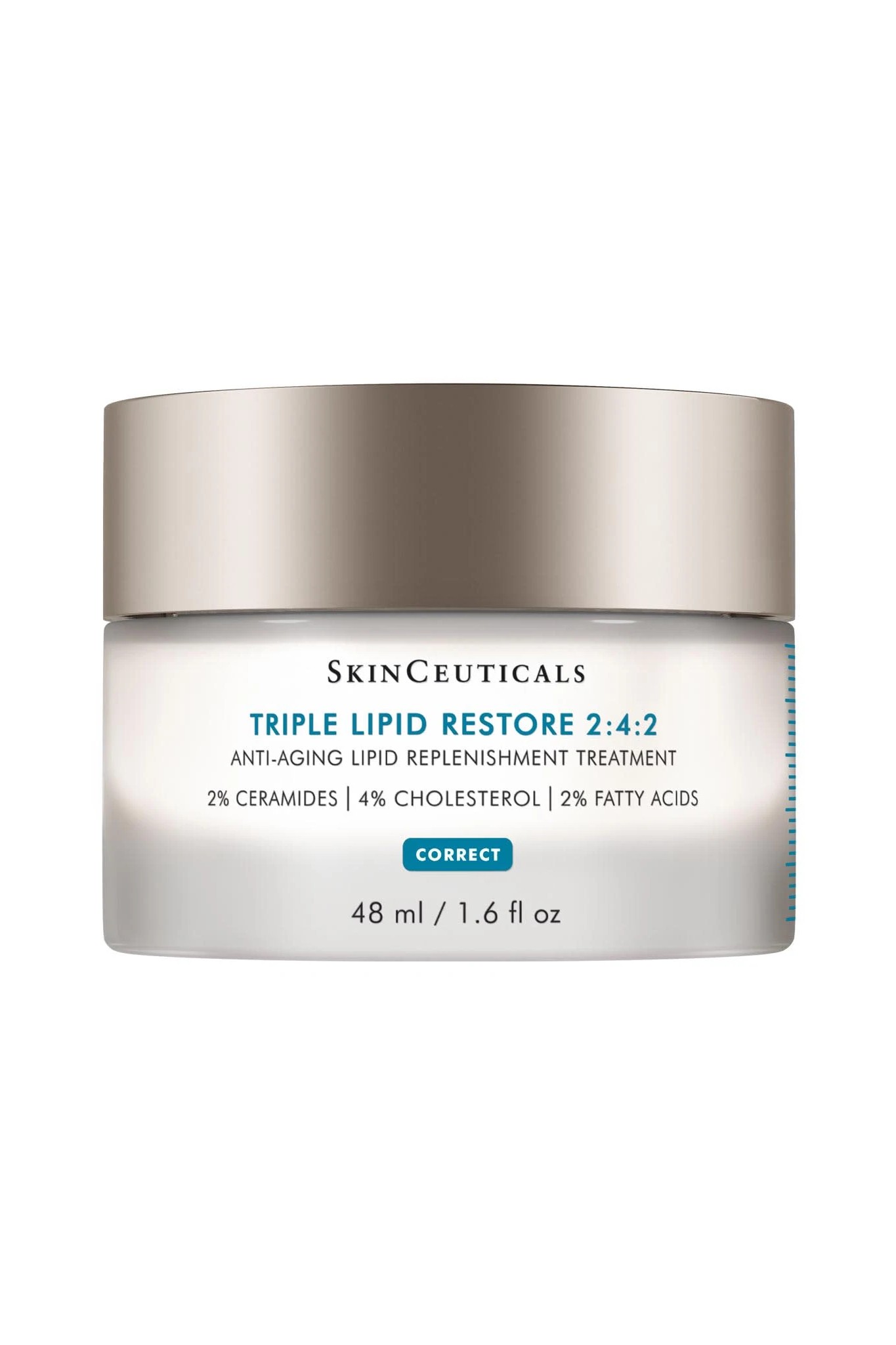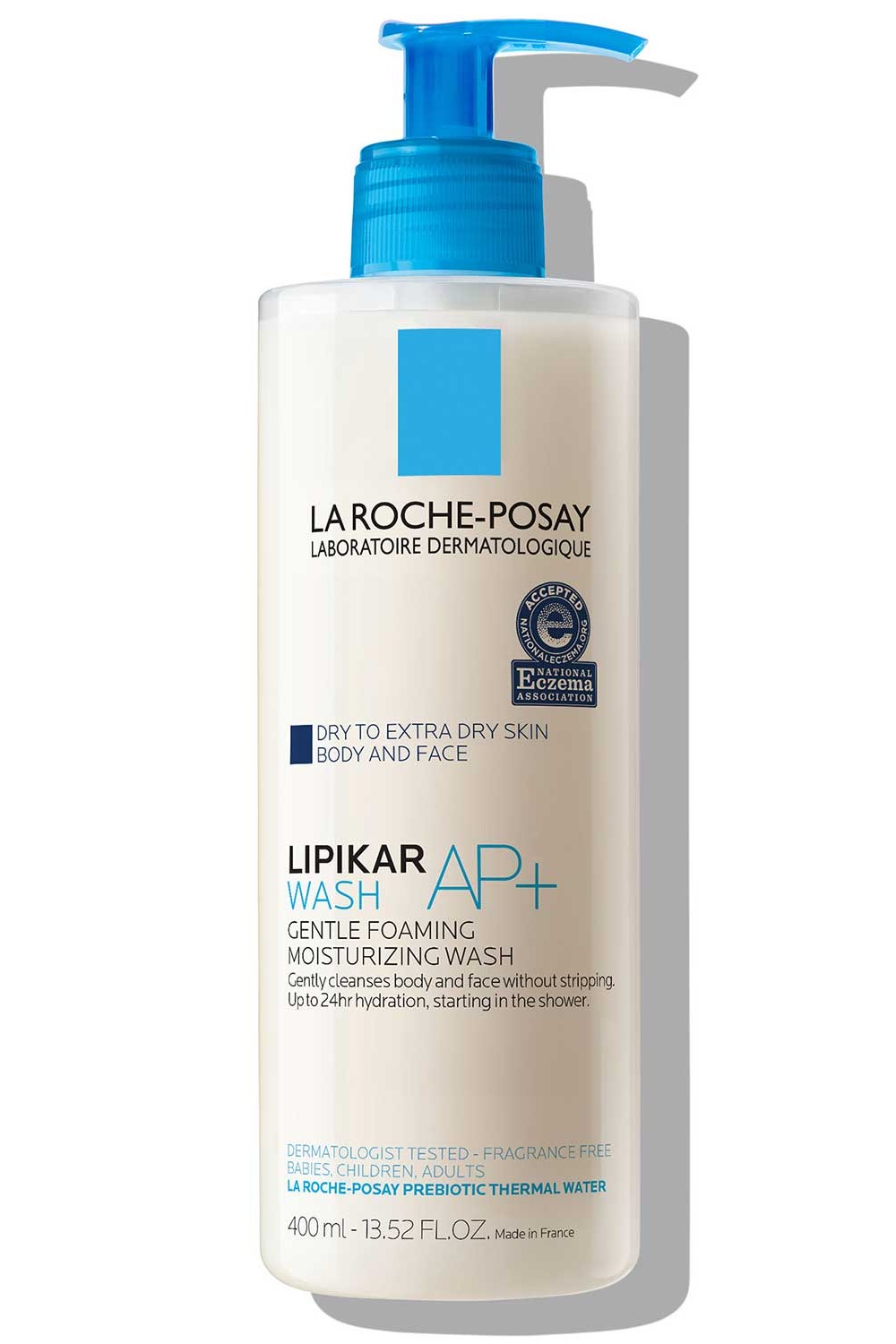A Dermatologist's Guide to Accutane
What to know about Isotretinoin, a.k.a. Accutane, if you’re struggling with severe acne.

- What is Accutane?
- Am I a candidate for Accutane?
- What are the benefits of Accutane?
- What are the side effects of Accutane?
- How often do I need to check in with my doctor?
- Will I get sunburned on Accutane?
- How long do I need to take Accutane?
- Do I need to change my skincare routine on Accutane?
- The Best Skincare Products to Use With Accutane

If you’ve streamlined your skincare routine and tried every topical under the sun in an effort to improve your chronic acne but have been met with little to no success, it might be time to discuss going on Accutane, otherwise known as Isotretinoin, with your doctor. For a crash course on the famed acne treatment, we tapped a handful of top dermatologists to create a one-stop-shop guide to Accutane.
From the benefits that the oral medication has to offer (goodbye, pimples) to the potential side effects like insanely dry lips (you’ll need Aquaphor on standby), our expert panel is breaking down everything you’ll want to keep top of mind before committing to the months-long treatment.
“It’s the best overall drug in terms of long-term efficacy, but it can have significant side effects and is a commitment,” Dr. Morgan Rabach, board-certified dermatologist and founder of LM Medical NYC, explains.
To learn more about Isotretinoin—and figure out if it’s right for you—keep reading. With details on everything from the bloodwork schedule you’ll need to abide by to the skincare swaps you need to make, Marie Claire is outlining every detail in our guide to Accutane, below.
What is Accutane?
Accutane is the brand name for a medication called Isotretinoin, which is a high dose vitamin A treatment in pill form. “Isotretinoin is the most powerful medication we have to treat acne,” says Dr. Joshua Zeichner, board-certified dermatologist and Director of Clinical and Cosmetic Research in Dermatology at Mount Sinai Hospital. “Unlike other medicines, it is associated with long-term remissions.”
Curious how it actually improves acne? Over the course of a few months, the treatment will permanently shrink your oil glands, according to Dr. Rabach. In turn, this will lead to less oil production, less clogged pores, and, most notably, less breakouts.
Am I a candidate for Accutane?
Isotretinoin is approved for anyone over the age of 12. While that’s the baseline, deciding who should go on Accutane is a more nuanced process for dermatologists. Most won’t recommend Accutane until other options have been exhausted. “A candidate for Isotretinoin is anyone that has failed other oral medications (like antibiotics, Spironolactone, or birth control) and has scarring,” Dr. Rabach explains.
Get exclusive access to fashion and beauty trends, hot-off-the-press celebrity news, and more.
Dr. Sapna Palep, board-certified dermatologist and founder of Spring Street Dermatology, adds that she finds the medication to be especially helpful for those who can’t get a handle on hormonal acne. While this is certainly common in teenagers, she explains that she sees plenty of women in their 20s, 30s, and 40s, as well as post-menopausal women, suffering from chronic acne. In fact, one study found that 15.3 percent of women over 50 deal with acne.
It’s also important that anyone taking Accutane isn’t pregnant or trying to get pregnant, as the medication can cause birth defects and affect future fertility. Every female on Accutane has to sign up for the IPledge program, and commit to taking two forms of contraception.
What are the benefits of Accutane?
While there are certainly side effects to consider (more on that later), Dr. Zeichner points out that unlike other antibiotics or creams, Isotretinoin offers long-term remission for severe acne patients. “We can’t promise that the skin will be clear forever, but it certainly will never be like what it was before taking it,” he says. What’s more, it targets acne regardless of location, be it butt acne, chest acne, or facial acne.
Dr. Palep also likes the treatment because patients can see a reduction in active acne in as little as two weeks. That in mind, she will do her best to clear patient's complexion with other topicals and antibiotics as much as possible beforehand to avoid extreme purging. “Think about it: if Accutane is shrinking the oil gland, it’s pushing all the debris out. If you’re clogged up and have all pussy pimples [when you start Isotretinoin], it could look bad,” she says.
What are the side effects of Accutane?
Perhaps the most widespread side effect is super dry skin across the eyes, lips, and nose, Dr. Rabach says. This will be noticeable within a few days of taking the medication. While diligent moisturizing will do the trick for some, others will need a prescription steroid cream to manage flakiness.
“Besides dryness, the medication is associated with the development of muscle aches and joint aches, increased cholesterol levels, and rarely, blurry vision,” Dr. Zeichner says. Dr. Rabach adds that because Isotretinoin is metabolized through the liver, it can cause stress on the organ. Consequently, it’s important to reduce alcohol intake.
There are also conflicting studies citing a relationship between Accutane and depression; however, no definitive link has been found. For a complete list of potential side effects, consult with your dermatologist and visit the American Academy of Dermatology website.
How often do I need to check in with my doctor?
Given the side effects that can come along with Accutane, monthly appointments with your doctor, as well as monthly blood work, is non-negotiable to make sure that all levels are up to par. Dr. Palep will additionally run labs one week after her patients take their last Accutane pill. “It shows me that everything looks great for them to exit out. But, let’s say their cholesterol is a little high, I’ll draw blood again at a three month check-in to make sure everything comes back normal,” she says.
Will I get sunburned on Accutane?
You should never, ever skip sunscreen (SPF 50, please), but it’s even more important to remember to lather up and re-apply when taking Isotretinoin. “The medication can make you extremely sun sensitive, so protecting yourself from the sun is extremely important—especially if you’re taking it in the summertime,” Dr. Zeichner explains.
How long do I need to take Accutane?
The treatment typically lasts around four to seven months, but the exact timing will be decided by your dermatologist. While one round of Accutane will make acne incrementally better, some patients will need a second round of Isotretinoin.
It’s also possible that patients will have an acne remission for years at a time, but need to restart Accutane down the line, according to Dr. Palep.
Do I need to change my skincare routine on Accutane?
Dr. Rabach tells her patients to avoid any products that will make the skin more sensitive. Think: Benzoyl Peroxide face washes, acid-like serums, retinol, and all topical acne creams. As for the products you should use? Dr. Palep recommends sticking to “really simple stuff.” She suggests avoiding oils and serums, while reaching for deeply hydrating, oil-free moisturizers, and gentle face washes.
The Best Skincare Products to Use With Accutane
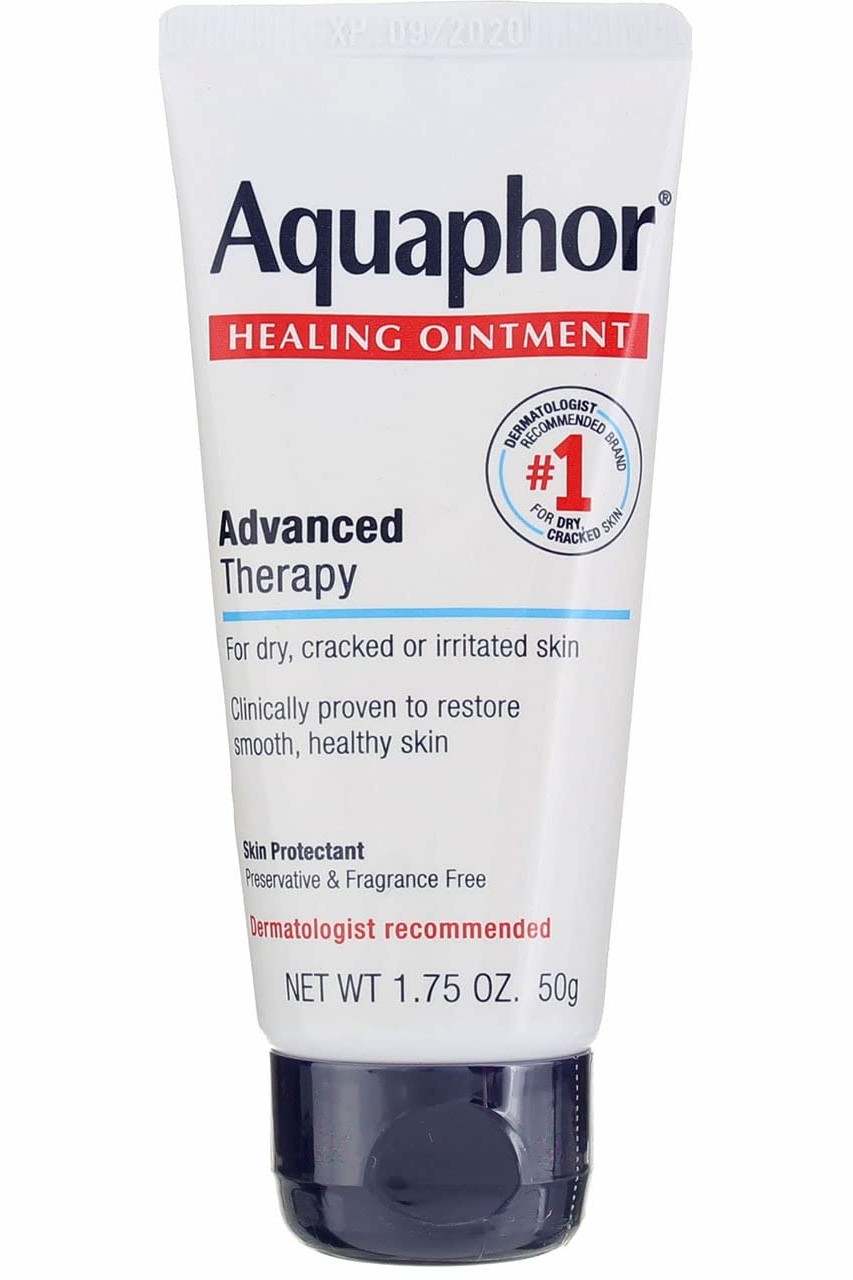
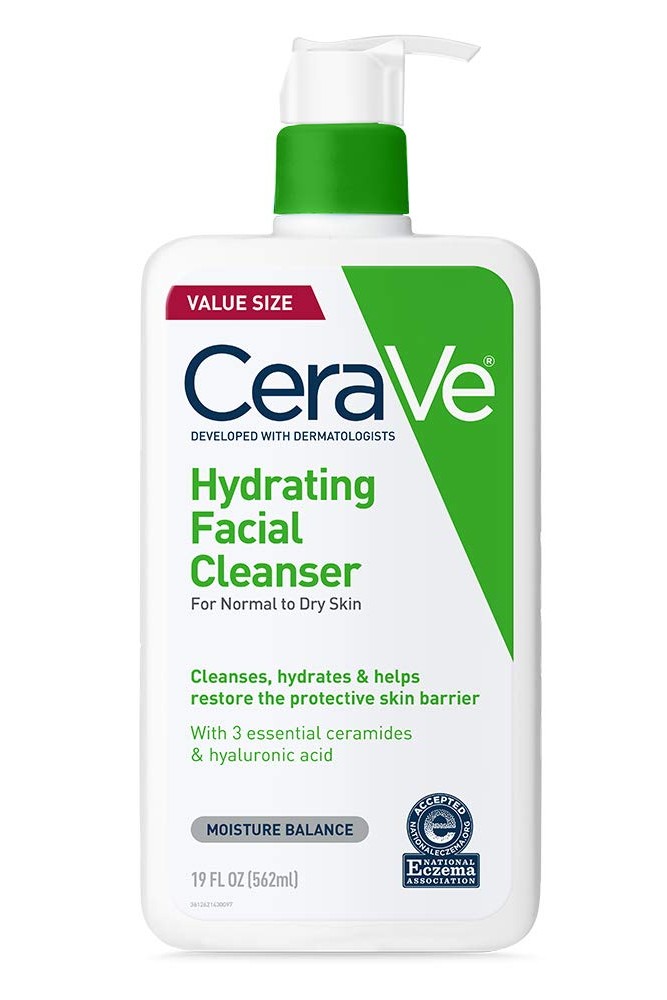
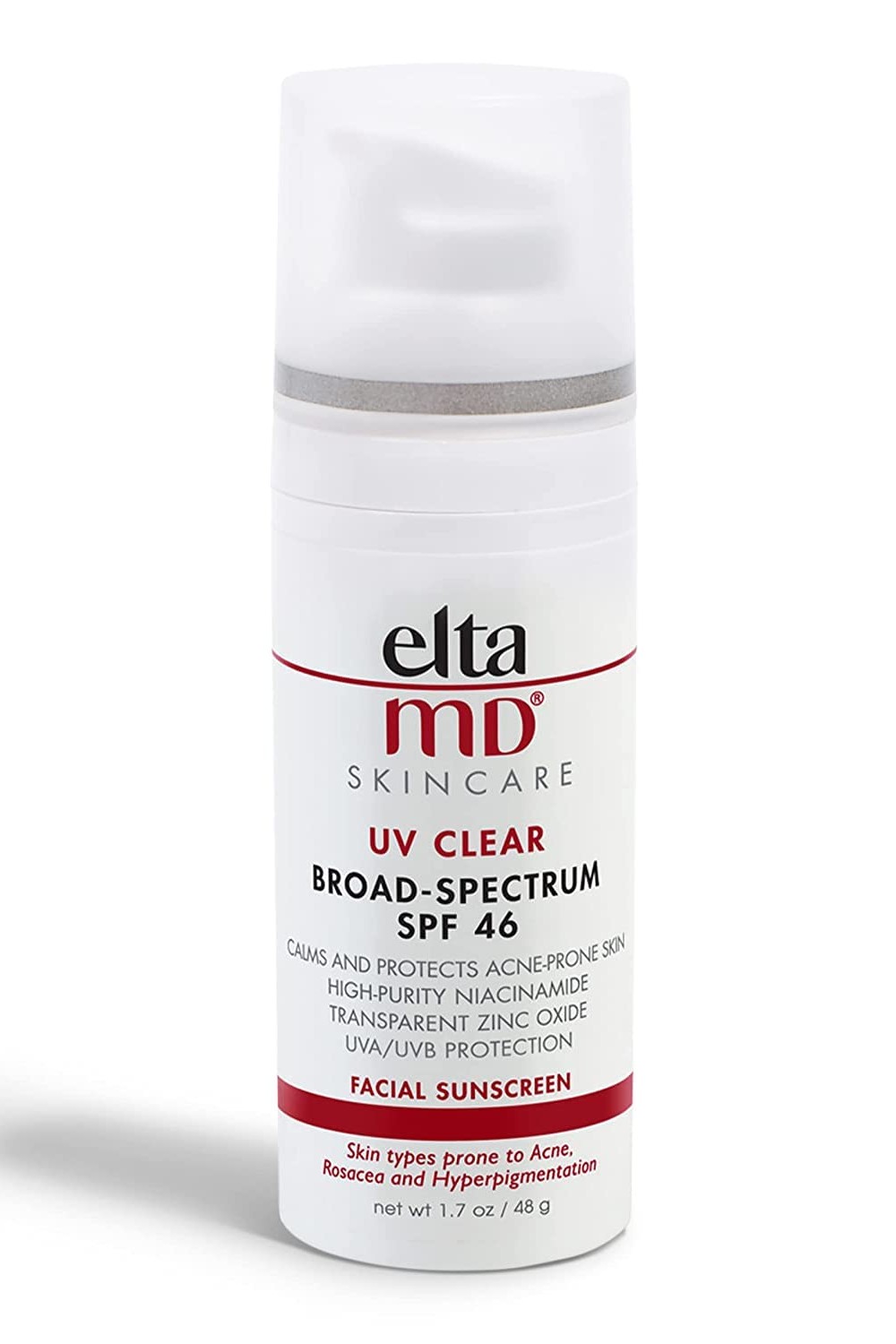
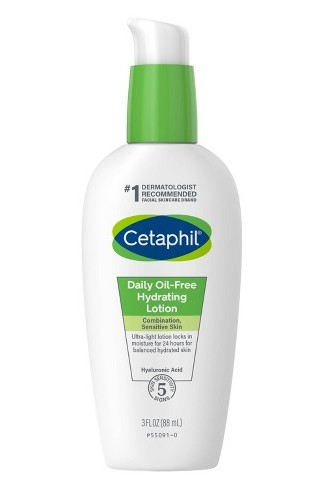

Samantha Holender is the Senior Beauty Editor at Marie Claire, where she reports on the best new launches, dives into the science behind skincare, and shares the breakdown on the latest and greatest trends in the beauty space. She's studied up on every ingredient you'll find on INCI list and is constantly in search of the world's glowiest makeup products. She's constantly tracking the biggest nail and hair trends to pop up in the beauty space, going backstage during fashion weeks, tracking celebrity looks, and constantly talking to celebrity hair stylists, nail artists, and makeup artists. Prior to joining the team, she worked as Us Weekly’s Beauty and Style Editor, where she stayed on the pulse of pop culture and broke down celebrity beauty routines, hair transformations, and red carpet looks. Her words have also appeared on Popsugar, Makeup.com, Skincare.com, Delish.com, and Philadelphia Wedding. Samantha also serves as a board member for the American Society of Magazine Editors (ASME). She first joined the organization in 2018, when she worked as an editorial intern at Food Network Magazine and Pioneer Woman Magazine. Samantha has a degree in Journalism and Mass Communications from The George Washington University’s School of Media and Public Affairs. While at GWU, she was a founding member of the school’s HerCampus chapter and served as its President for four years. When she’s not deep in the beauty closet or swatching eyeshadows, you can find her obsessing over Real Housewives and all things Bravo. Keep up with her on Instagram @samholender.
